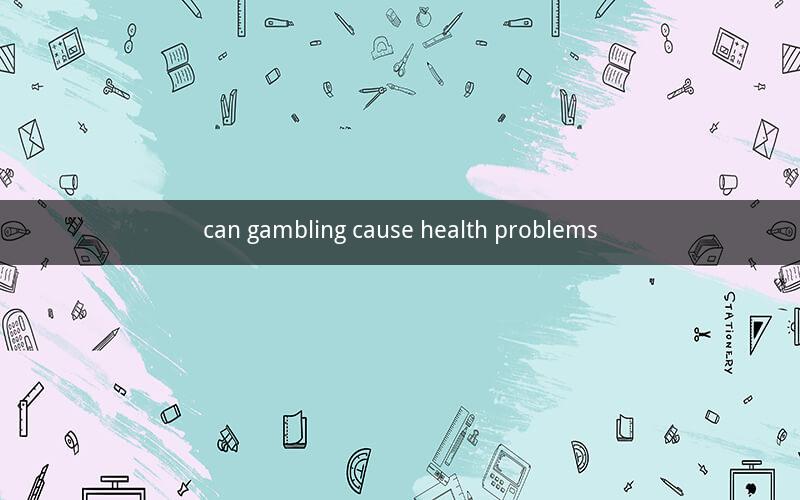
Contents
1. Introduction to Gambling
2. The Psychological Impact of Gambling
3. Physical Health Risks Associated with Gambling
4. Social Consequences of Problem Gambling
5. Treatment and Prevention Strategies
6. Conclusion
Introduction to Gambling
Gambling, an ancient pastime, has evolved into a global phenomenon, captivating millions with its promise of excitement and potential wealth. From traditional lottery games to sophisticated online platforms, the allure of gambling is undeniable. However, this pursuit of fortune can lead to a variety of health problems, both physical and psychological. In this article, we delve into the potential health risks associated with gambling.
The Psychological Impact of Gambling
Gambling can have profound psychological effects on individuals. The act of gambling often triggers a release of dopamine, a neurotransmitter associated with pleasure and reward. This can lead to a reinforcing cycle, where individuals continue to gamble in an attempt to recapture the initial thrill. Over time, this can lead to addiction, characterized by an inability to control gambling behavior and a preoccupation with gambling activities.
1. Compulsive Gambling
Compulsive gambling, also known as problem gambling, is a serious psychological disorder. Individuals with this condition often experience intense cravings to gamble, despite negative consequences. This can lead to financial strain, strained relationships, and a decline in overall mental health.
2. Anxiety and Depression
Gambling can also trigger anxiety and depression. The uncertainty and risk involved in gambling can lead to stress and worry, which may exacerbate existing mental health issues. Furthermore, the failure to win or the fear of losing can contribute to feelings of sadness and hopelessness.
Physical Health Risks Associated with Gambling
Gambling, while primarily a psychological activity, can also have significant physical health consequences.
1. Sleep Disruption
Gambling, especially when done excessively, can lead to sleep disruption. The stress and anxiety associated with gambling can make it difficult to fall asleep or stay asleep, leading to fatigue and other health issues.
2. Increased Risk of Cardiovascular Disease
Stress and anxiety can increase the risk of cardiovascular disease. The constant worry and fear associated with gambling can lead to elevated blood pressure, heart rate, and cholesterol levels, all of which are risk factors for heart disease.
3. Obesity and Metabolic Syndrome
Gambling, particularly in casinos or online platforms, often involves sedentary behavior. This lack of physical activity, combined with the consumption of high-calorie foods and drinks, can lead to obesity and metabolic syndrome.
Social Consequences of Problem Gambling
Problem gambling can have devastating social consequences, affecting not only the individual but also their family and community.
1. Financial Strain
One of the most immediate consequences of problem gambling is financial strain. Individuals with gambling problems often find themselves in significant debt, which can lead to eviction, foreclosure, and other financial hardships.
2. Strained Relationships
Gambling addiction can strain relationships with loved ones. The secrecy, lies, and financial strain associated with problem gambling can lead to trust issues and emotional distance.
3. Decreased Social Functioning
Problem gamblers may experience a decrease in social functioning, as they prioritize gambling over other aspects of their lives. This can lead to isolation and a decline in quality of life.
Treatment and Prevention Strategies
Addressing the health problems associated with gambling requires a multifaceted approach, including treatment and prevention strategies.
1. Treatment Options
Treatment for gambling addiction can include cognitive-behavioral therapy, medication, and support groups. Cognitive-behavioral therapy helps individuals identify and change unhealthy gambling behaviors, while medication can help manage underlying psychological issues.
2. Prevention Strategies
Prevention strategies include public awareness campaigns, education on the risks of gambling, and the implementation of responsible gambling policies.
Conclusion
Gambling, while an enjoyable pastime for many, can lead to a variety of health problems. From psychological disorders to physical health issues, the consequences of problem gambling can be severe. By understanding the risks and taking proactive measures, individuals can mitigate these health problems and lead healthier lives.
Questions and Answers
1. What is the main psychological impact of gambling?
- The main psychological impact of gambling is the potential for addiction, leading to compulsive gambling and associated mental health issues such as anxiety and depression.
2. Can gambling lead to physical health problems?
- Yes, gambling can lead to physical health problems, including sleep disruption, increased risk of cardiovascular disease, and obesity.
3. How does problem gambling affect social relationships?
- Problem gambling can strain relationships by causing financial strain, trust issues, and emotional distance.
4. What are some treatment options for gambling addiction?
- Treatment options for gambling addiction include cognitive-behavioral therapy, medication, and support groups.
5. How can individuals prevent problem gambling?
- Individuals can prevent problem gambling by being aware of the risks, setting limits on gambling activities, and seeking support when needed.
6. Can gambling lead to financial strain?
- Yes, gambling can lead to financial strain, as individuals with gambling problems may accumulate significant debt.
7. Are there any physical health consequences of problem gambling?
- Yes, there are physical health consequences of problem gambling, including sleep disruption, increased risk of cardiovascular disease, and obesity.
8. How can family members support someone with gambling addiction?
- Family members can support someone with gambling addiction by providing emotional support, helping them seek treatment, and setting boundaries to protect themselves from financial strain.
9. What role does stress play in gambling-related health problems?
- Stress plays a significant role in gambling-related health problems, as it can exacerbate mental health issues and increase the risk of physical health problems.
10. Can education help prevent problem gambling?
- Yes, education can help prevent problem gambling by raising awareness about the risks and promoting responsible gambling behaviors.